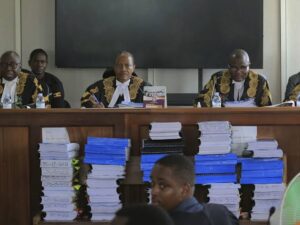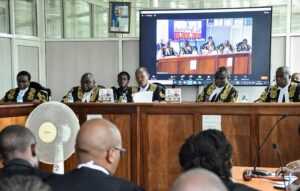In a recent ruling, Uganda’s Constitutional Court made a contentious decision regarding the Anti-Homosexuality Act 2023, sparking both relief and concern within the nation and abroad.
The court, comprising five justices, largely upheld the law, citing alignment with the country’s Constitution and values. However, they struck down specific sections, including 3(2)C, 9, 11(2)d, and 14, deeming them inconsistent with constitutional rights to health, privacy, and freedom of religion.
Deputy Chief Justice Richard Buteera, speaking on behalf of the panel, stated, “We decline to nullify the Anti-Homosexuality Act 2023 in its entirety, neither do we grant a permanent injunction against its enforcement.” He added that the petition “substantially fails” and ordered the removal of the aforementioned sections.
The decision follows protests and condemnation from Western nations, including the United States, which revoked trade benefits under the African Growth and Opportunity Act for Uganda and three other African countries due to the enactment of the law.
Also, read: Sudan Imposes Ban on Major Arab News Platforms Including Sky News
The Anti-Homosexuality Act 2023, enacted primarily to protect children in schools from recruitment into homosexual practices, imposes severe penalties for various offenses related to homosexuality. These penalties range from imprisonment to death for aggravated cases.
Since its enactment, President Yoweri Museveni has faced backlash, with some Western nations cutting aid to Uganda. However, Museveni clarified that the law targets recruitment into homosexuality rather than inhibiting medical care for homosexuals, a claim disputed by critics.
The court’s decision comes amid ongoing legal challenges, with petitions filed by various individuals and groups challenging the law’s legality. Among the petitioners are MPs, activists, and organizations advocating for human rights.
As Uganda grapples with the complex intersection of legal, moral, and human rights issues surrounding the Anti-Homosexuality Act, the ruling sets a precedent for future debates on LGBTQ+ rights and freedoms within the nation.

